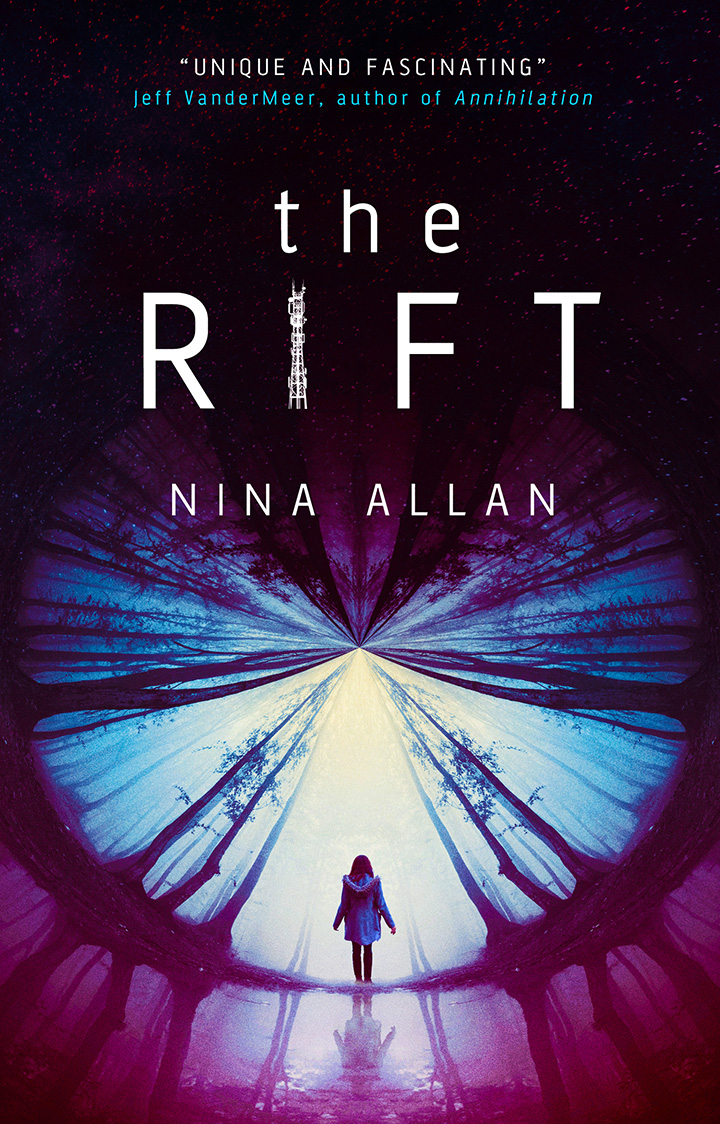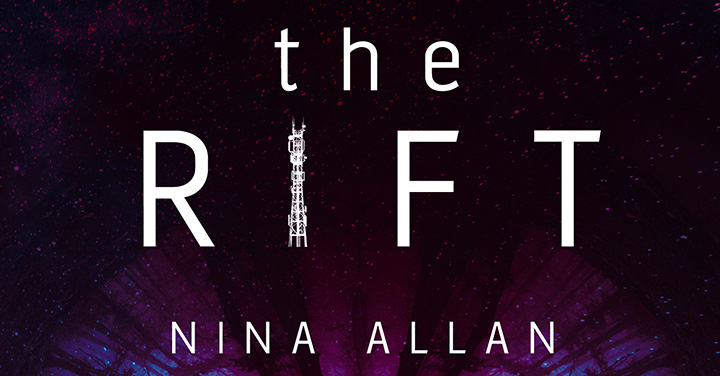The Race really was rather remarkable. A story of stories about the lives of ordinary people becoming unfastened from reality, it was shortlisted following its first publication for the John W. Campbell Memorial Award, the BSFA Award and the Kitchies Red Tentacle. In this year’s Reviewers’ Choice, I myself said it was “a text so very revelatory that I’ll read anything its author has a hand in from here on out.”
That means The Rift, readers: book two of the two-book deal Nina Allan signed with Titan back in August 2015. “A science fiction mystery about a woman named Julie who believes she’s been abducted by aliens,” The Rift is, as press officer Lydia Gittins puts it, “very much a continuation of the progressive and subversive style that won The Race so many critical accolades and award nominations.”
Your first look at its final cover art follows, alongside an exclusive excerpt and a bit about how the novel we’ll all be reading upon its release next year came to be.
The Rift began life as a short story for Dead Letters, the awesome anthology Conrad Williams edited to kind-of, sort-of celebrate the 500th anniversary of the founding of the Royal Mail, Great Britain’s primary and now privatised postal service. Allan had been asked to put something together for said collection, inspired by an undelivered letter containing “a weird blurry photograph that looked like something out of a found footage horror movie but that Conrad says actually was found in Hastings, where we were then living.”
And then I started writing and couldn’t stop. I’m not good at writing ‘short’ short fiction at the best of times, but it wasn’t long before I had 30,000 words and no end in sight. It was at this point I realised that what I was writing wasn’t a short story at all, but my next novel.
That was how it began. This, then—Titan’s pitch for The Rift—is how it ends:
Selena and Julie are sisters. As children they were close, but as they grow older, a rift develops between them. There are greater rifts, however. Julie goes missing aged seventeen. It will be twenty years before Selena sees her again. When Julie reappears, she tells Selena an incredible story about how she has spent time on another planet. Does Selena dismiss her sister as the victim of delusions, or believe her, and risk her own sanity?
And here’s the stark cover art:

That should sit quite nicely alongside Titan’s definitive edition of The Race, right?
Last but not least, an early Christmas gift—500 words of The Rift:
“Selena, it’s Julie.”
Selena’s first, split-second reaction was that she didn’t know anyone called Julie and so who the hell was this speaking? The second was that this couldn’t be happening, because this couldn’t be real. Julie was missing. Her absence defined her. The voice coming down the wire must belong to someone else.
A prank call. There had certainly been enough of them, at the time. Selena listened to the faint shhh-shhh-shhh of the open phone line, the more distant background hum of the fridge. There was a pain inside her skull, an entity. She tried not to concentrate on it, not to give it houseroom. She was holding her breath and her lungs hurt. She stared at the perforations in the inverted plastic cup of the telephone receiver, knowing that if she breathed out there would be a rushing, a susurrus. The person at the other end would know she was there.
“Please don’t put down the phone,” Julie said.
“Julie?” said Selena. She found she was listening to her own voice, trying to memorise the sound of it, as if it were a recording she was hearing and not the real thing.
The police had said that if there were prank calls they should be notified immediately.
Whoever heard of a prank call after twenty years?
“No,” Selena said. Like: no, this isn’t happening or no, I don’t know who the fuck you are but you’re not my sister or no, just no. Pick one.
“I know how this must sound,” said Julie. Selena laughed, a bright, shallow, tinny sound, like balls of scrunched-up aluminium foil being rattled around in the bottom of a plastic cup. I sound like a laughter track, Selena thought. Someone making noises at something that isn’t funny, but trying to get a laugh out anyway because they know it’s expected.
I know how this must sound. Like imagine that someone died, and you went to their funeral. You opened the cards and answered the letters, said thank you for the flowers. You saw time whipping past your windows like a thick blue fog.
Twenty years later you picked up the phone and suddenly someone’s telling you it was all a joke.
Ha ha, very funny. Now piss the fuck off.
“Who is this?” Selena said. Then silence, a blank space so loud Selena could almost feel the hurt in it. She could hear her own teeth chattering, as if she’d just found out about something awful and was about to cry. Things she heard on the news affected her like that, sometimes. Missing children and railway accidents, house fires, the kind of bottomless everyday tragedies she couldn’t talk about because if she even opened her mouth to mention them she knew she’d burst into tears.
You won’t have to wait all that long to read the rest of The Rift, either. Roll on its release here, there and everywhere on July 11th!
Niall Alexander is an extra-curricular English teacher who reads and writes about all things weird and wonderful for The Speculative Scotsman, Strange Horizons, and Tor.com. He lives with about a bazillion books, his better half and a certain sleekit wee beastie in the central belt of bonnie Scotland.










